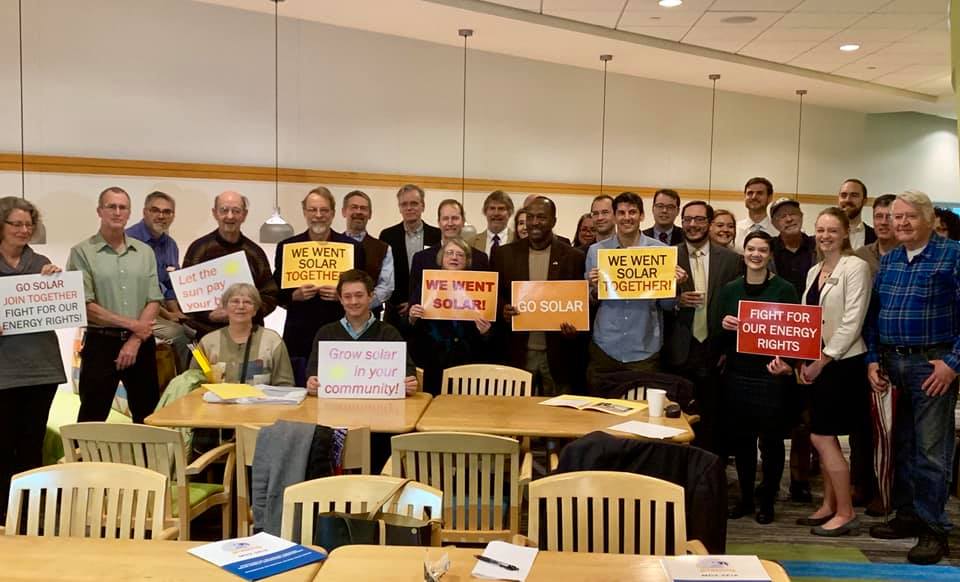Fight for solar rights takes place on many fronts

This past summer I was Solar United Neighbors’ Policy and Advocacy Intern. I am a recent alum of The College of William and Mary. My time at SUN gave me a great start to my career in public policy. While an intern, I had the opportunity to contribute to the organization’s fight for solar rights. This fight takes place on many fronts, including at rural electric cooperatives, local utility commissions, and the halls of Congress.
Rural electric cooperatives serve roughly 42 million Americans. They are critical in the fight to protect solar rights. I researched how the rates cooperatives set for customers impact solar homeowners and developed a best practices fact sheet for policymakers and advocates. I also researched how the energy transition will affect rural electric cooperatives in Colorado.
I got out from behind the desk to work in the field as well. The Rappahannock Electric Cooperative (REC) is the largest rural co-op in Virginia, serving more than 149,000 member-owners. The co-op maintains a shroud of secrecy around its operations. It prevents member-owners from meaningfully participating in their co-op. I knocked on doors and made phone calls to educate member-owners. I spoke with them about how they can take back control of their cooperative. This campaign pushed REC to make small, but needed changes. Our work made their operations more transparent in response to the pressure we put on them. But, there is still a lot of room for improvement for solar policy and transparency at REC.
Further south, I showed how a municipal utility in Florida planned to impose excessive fees on solar. Lakeland Electric is a municipal utility serving 120,000 customers. The utility wants to place a fee on solar owners to discourage people from going solar. I discovered their planned demand charges would be the highest for any municipal utility in Florida and would be the second highest in the state for all utilities. These charges would make solar a financial burden for people who want to install solar.
My favorite project this past summer was coordinating our solar Investment Tax Credit (ITC) lobby day. On the lobby day, Solar United Neighbors staff from all around the country met with Congressional staff to advocate for extending the solar federal tax credit. The ITC currently provides a tax credit of 30% for the cost of installing solar. This tax credit has helped over a million Americans go solar, yet it is set to decrease to 26% in 2020, 22% in 2021, and to zero out in 2022. We pushed Congress to extend the tax credit for five years.
We focused our efforts on the Ways and Means committee, which is where legislation to extend the ITC will originate. I scheduled 20 meetings with Democratic and Republican legislative staffers who work with this committee. We let them know that their constituents care about this important issue.
I had a great summer at Solar United Neighbors and am proud of the projects I contributed to. Solar United Neighbors fights hard every day for an energy system built on solar rights.
